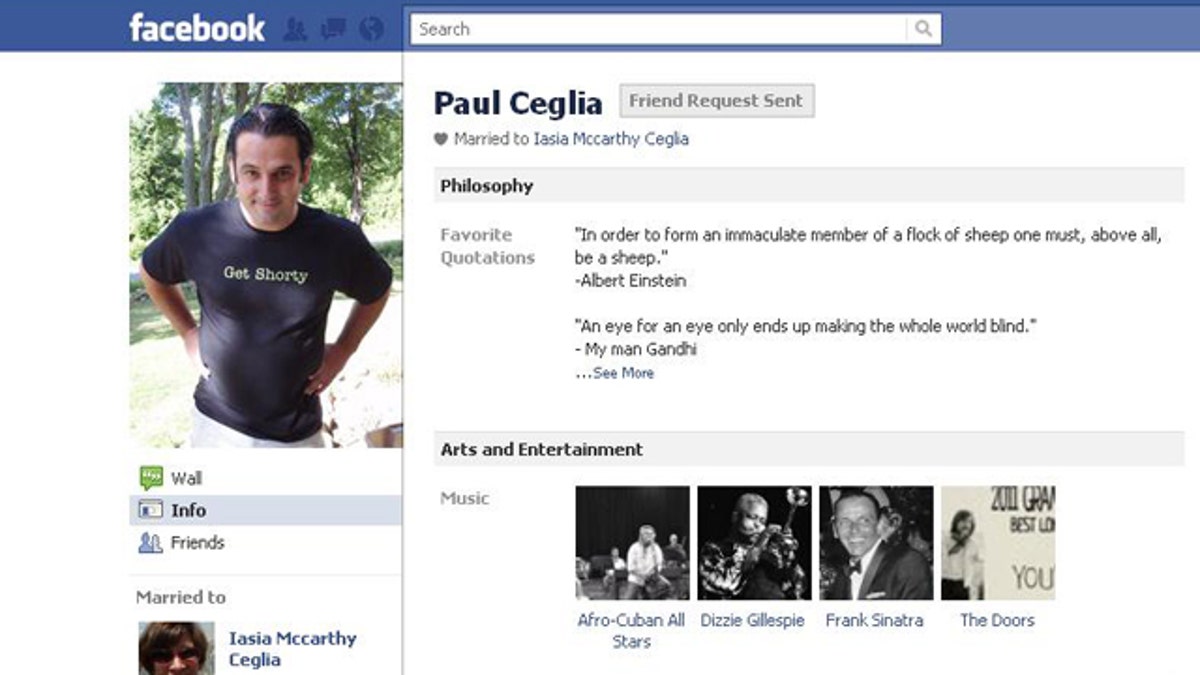
A screenshot of Ceglia's Facebook page.
BUFFALO, N.Y. – Facebook and its founder will try to have a man's lawsuit claiming part ownership of the $50 billion social networking website thrown out of court after securing proof the contract on which it's based is fake, a Facebook attorney said Tuesday.
Experts determined that the ink on the document, which Paul Ceglia claims he and Facebook founder Mark Zuckerberg signed in 2003, is less than 2 years old, Facebook attorney Orin Snyder said. He accused Ceglia of trying to artificially age the document, possibly by setting it out in the sun.
"The fraud has been exposed. His contract has been exposed as a manufactured document," Snyder said during a four-hour session in U.S. District Court, where the two sides sparred over a laundry list of pre-trial issues.
Snyder said he would file a motion to dismiss the lawsuit early next year.
Ceglia, of Wellsville, in New York's Southern Tier, claims the work-for-hire contract, along with a series of follow-up emails, prove that when he hired Zuckerberg to help him develop a street-mapping database eight years ago he gave the then-Harvard University freshman $1,000 in start-up money for his fledgling Facebook idea with the condition he'd own half if it expanded.
Ceglia's attorney stood by the contract Tuesday, saying the ink testing method used by Facebook's experts was unscientific and wouldn't hold up in court.
And he refuted Snyder's contention that Ceglia has been trying to drag out his 2010 lawsuit to pressure the Palo Alto, Calif.-based company into a hefty settlement before a much anticipated initial public offering expected to take place after April 2012.
"It's the opposite," Ceglia attorney Dean Boland said after the hearing.
He said Ceglia has been fighting for months to move the case forward by seeking access to evidence Facebook might present. So far, only Ceglia has had to turn over his proof to the other side, including the contract, emails, computers and electronic storage devices.
Boland told the judge that while the contract is discolored, it was Facebook's experts who caused it to yellow by overexposing it to ultraviolet light during their testing.
Snyder charged that Ceglia had "baked" the document earlier this year to interfere with ink testing but that experts were able to determine it was less than 2 years old. He said the experts' reports, along with charges of evidence tampering, would be part of his motion to dismiss.
The Facebook attorney said he had planned to seek dismissal in September but had been delayed by Ceglia's failure to fully comply with a court order to turn over all electronic devices and email information. Ceglia, who has been living in Ireland while his case winds through court, said he can't find some of the storage devices being sought.
